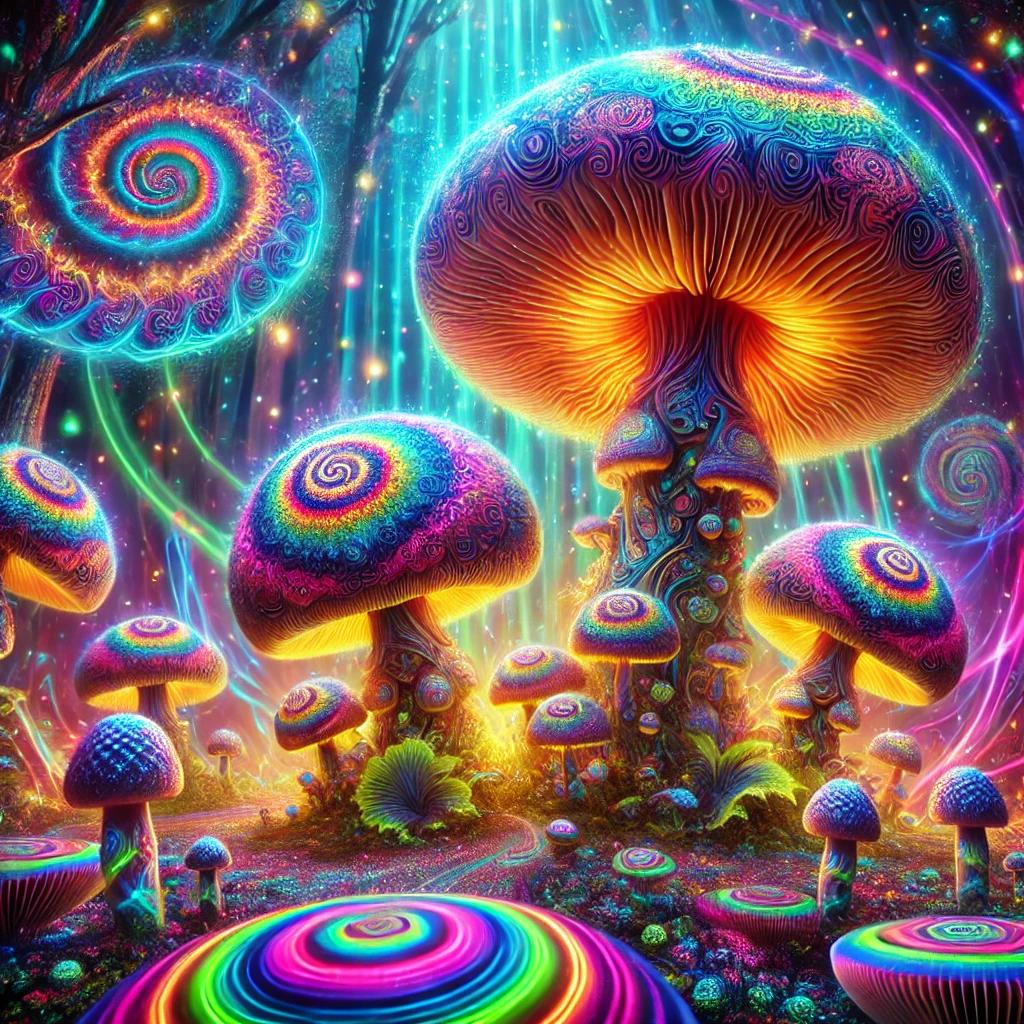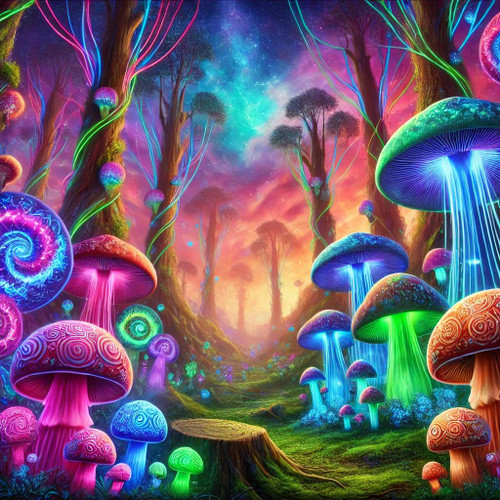Mushroom Chocolate: Navigating the Legal Landscape
Posted by Billy Ford on 12th Sep 2024
In recent years, mushroom chocolate has gained attention for its blend of indulgent cocoa and the potential mind-altering effects of certain mushrooms. But the big question remains: Is it legal? In this blog, we'll explore the complexities of mushroom chocolate, the types of mushrooms used, and what you need to know before indulging. Our goal is to provide a clear overview of this fascinating and sometimes controversial treat.

What Is Mushroom Chocolate?
Mushroom chocolate combines the rich taste of chocolate with the effects of psychedelic or medicinal mushrooms. Some varieties, like those containing psilocybin, have mind-altering effects, while others use adaptogenic mushrooms for potential health benefits. This growing trend blends gourmet confectionery with the ancient use of mushrooms for mental and physical effects.
Brands like Polkadot offer a range of flavors, such as S'mores Magic Mushroom Belgian Chocolate, giving consumers a more enjoyable way to consume mushrooms that might otherwise be bitter or hard to swallow.
Understanding the Legal Landscape
The legality of mushroom chocolate depends on the type of mushrooms used. Chocolates made with psilocybin mushrooms are illegal in many areas due to their psychedelic properties. However, some states in the U.S., like Oregon and Colorado, are leading the charge in decriminalizing and regulating the therapeutic use of psilocybin.
It’s essential to note that while some states have changed their stance, psilocybin is still classified as a Schedule I controlled substance under U.S. federal law, making it illegal to manufacture, sell, or possess these products.
Types of Mushrooms Used in Chocolates
Psilocybe cubensis, known for its psilocybin content, is the most common mushroom used for psychedelic effects in these chocolates. However, many mushroom chocolates use non-psychoactive varieties like Lion’s Mane, Reishi, and Chaga, which are legal and used for their health benefits, such as immune support and improved cognitive function.
Legal Implications of Psilocybin Mushrooms
For chocolates containing psilocybin, the legal consequences are significant. In states where psilocybin remains illegal, possessing or distributing these chocolates can result in criminal charges. Even in states where psilocybin therapy is legal, strict regulations apply, and products must comply with state laws.
Navigating Local Laws and Regulations
Given the patchwork of regulations surrounding psilocybin, it’s important to research your local laws before purchasing or consuming mushroom chocolates. In places like Oregon, psilocybin chocolates are only legal in regulated settings, while in other states, their sale and possession remain prohibited.
Potential Legal Consequences
The risks of consuming psilocybin mushroom chocolates in areas where they are illegal include fines, criminal charges, and imprisonment. Additionally, there’s a risk of children mistakenly consuming these chocolates, so responsible usage and storage are essential.
How to Stay Informed and Safe
To stay informed about the legal landscape, follow reputable news sources, subscribe to newsletters, and participate in community discussions. If you’re curious about trying mushroom chocolates, opt for legal products containing medicinal mushrooms, or ensure you’re in a jurisdiction where psilocybin is legal.
Always prioritize safety by purchasing from reputable suppliers that provide transparent product information, including precise dosage details.
Conclusion: The Legal Mystery of Mushroom Chocolate
While mushroom chocolate offers a unique and intriguing experience, it’s important to understand the legal and safety implications. Whether you’re interested in the therapeutic benefits of psilocybin or the health perks of medicinal mushrooms, staying informed and cautious will help ensure a safe and legal experience. Ready to explore more unique treats? Visit our homepage for more information.


